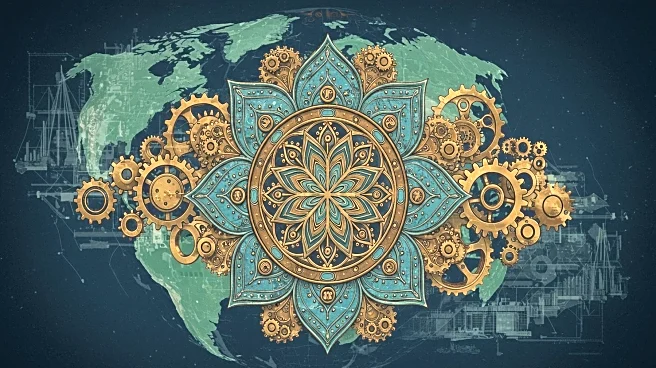What's Happening?
Indian Prime Minister Narendra Modi has called for increased self-reliance in manufacturing and agriculture in response to tariffs imposed by President Trump. Modi emphasized the importance of local production, urging traders to promote 'Swadeshi' products. The tariffs, which affect Indian exports, have heightened tensions between the two nations, prompting Modi to announce measures such as reduced GST to boost consumption and the establishment of a new defense system.
Why It's Important?
The tariffs pose a significant challenge to India's economy, potentially disrupting access to its largest export market. Modi's push for self-reliance aims to mitigate these impacts by strengthening domestic industries and reducing dependency on foreign imports. This approach is crucial for maintaining economic stability and protecting key sectors like agriculture, which are vital to India's political and social fabric.
What's Next?
India is expected to continue its focus on self-reliance, with initiatives to boost local manufacturing and reduce import dependency. The government's commitment to lowering GST and enhancing affordability may stimulate domestic consumption, while ongoing trade tensions could lead to further diplomatic negotiations.
Beyond the Headlines
The situation underscores the geopolitical dynamics between India and the U.S., where economic policies are intertwined with broader strategic interests. Modi's emphasis on self-reliance reflects a shift towards nationalistic economic policies, potentially influencing global trade patterns and alliances.









